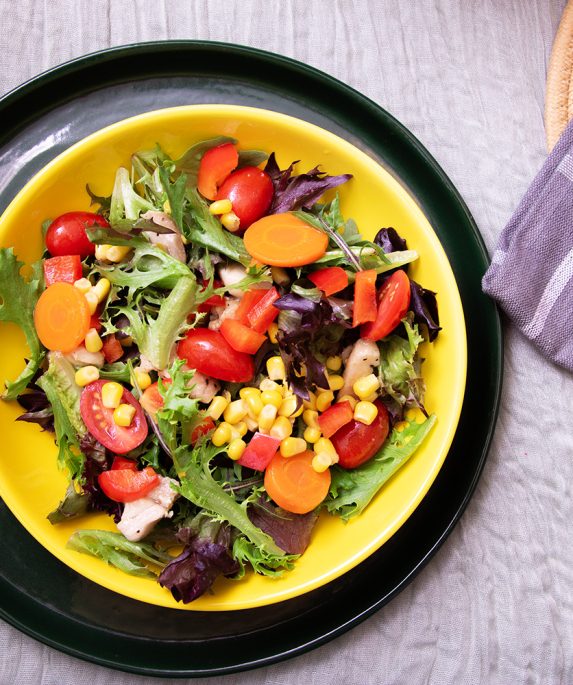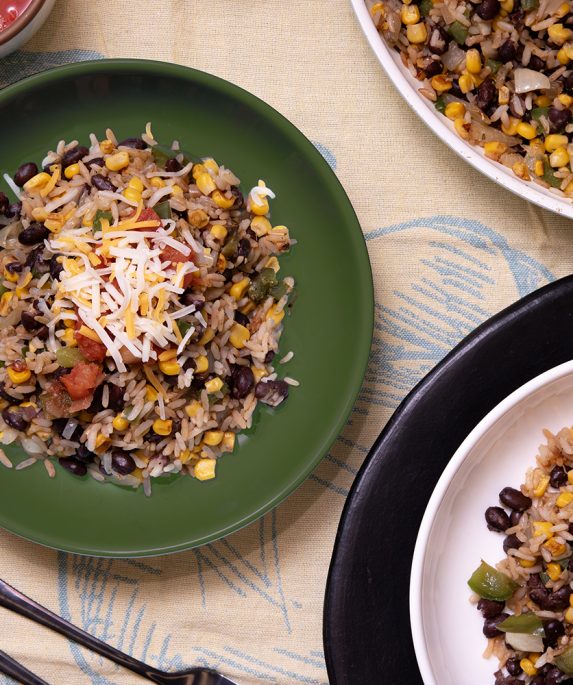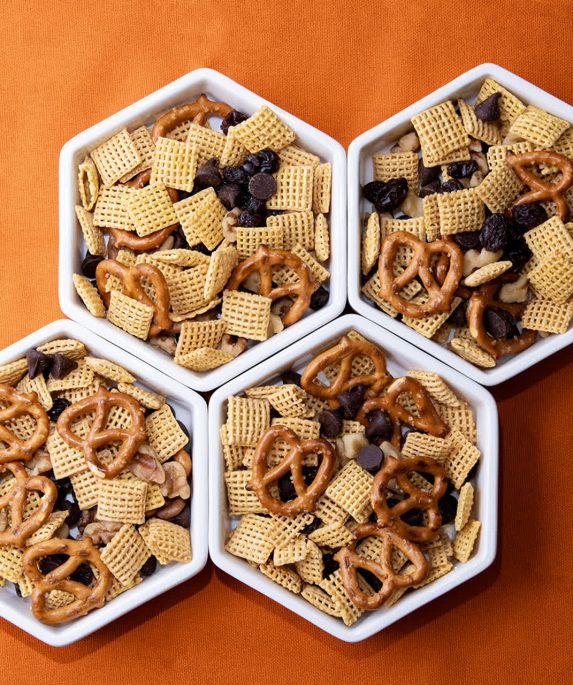As the weather heats up, there’s nothing quite like a fresh, crisp salad to keep things light and refreshing. With endless possibilities for greens, veggies, proteins, and dressings, the perfect salad is yours to create!
Ingredients:
Serves 4-6
- Greens 10-ounce bag
- Leaf lettuce
- Spinach
- Romaine lettuce
- Kale
- Mixed salad greens
- Vegetables fresh, frozen, or canned
Mix and match any vegetable, up to 2 cups- Tomato
- Carrots, sliced or shredded
- Cucumber
- Bell pepper
- Corn kernels
- Optional Protein, 2 cups
- Beans
- Hard boiled eggs
- Cooked chicken, turkey, beef
- Edamame
- Ham
- Optional Toppings
- Nuts, seeds, or fruit
- Cheese, shredded
- Croutons
- Cooked pasta
- Homemade Dressings, choose one
- Simple Dressing
- 3 tablespoons olive oil
- 2 tablespoons wine vinegar
- 1 teaspoon salt
- 1/4 teaspoon pepper
- Balsamic Vinaigrette
- 2 tablespoons balsamic vinegar
- 1 tablespoon Dijon mustard
- 3 tablespoons oil
- 1 tablespoon honey
- Salt and pepper to taste
- Simple Dressing
Instructions:
- Wash hands with soap and warm water.
- If using canned veggies, rinse thoroughly in a colander. If using frozen veggies, be sure to thaw before adding in step 4.
- Rinse vegetables before chopping, shredding, or adding into salad bowl.
- Combine desired homemade dressing ingredients in a small bowl.
- Combine desired ingredients in a large bowl and add your dressing.
- Use tongs to toss everything together and serve.
- Refrigerate any leftover dressing. If the oil thickens, let sit at room temperature for 5-10 minutes before using again.



